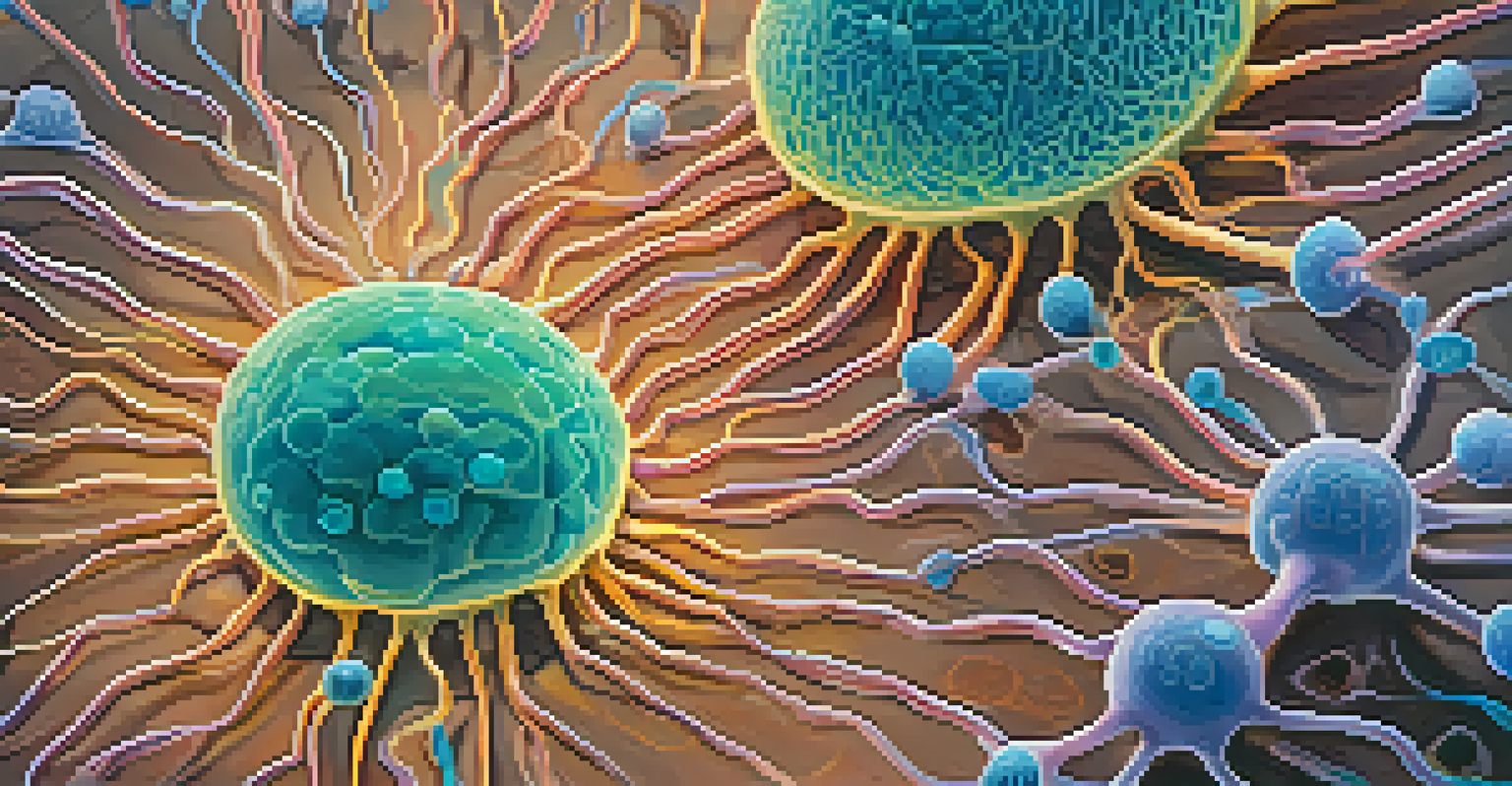Adaptive Immunity: How the Body Learns to Fight Disease

What is Adaptive Immunity and Why It Matters
Adaptive immunity is a vital part of our immune system, acting like a personalized defense force against pathogens. Unlike innate immunity, which provides a general response to invaders, adaptive immunity evolves over time, learning to recognize specific threats. This ability to adapt is crucial for effectively fighting off diseases, ensuring our bodies can respond more efficiently upon future encounters.
The immune system is a complex network of cells and proteins that defends the body against infection. It is our body's natural defense system.
Think of adaptive immunity as a seasoned detective who learns from each case. The first time a virus enters the body, the immune system may take longer to identify and respond. However, once it has encountered that virus, it retains a memory of it, allowing for a quicker and more robust response if the same virus tries to invade again.
This sophisticated system not only protects us from infections but also contributes to the effectiveness of vaccines. By training our immune system to recognize specific pathogens, vaccines can help build immunity without causing the disease itself.
The Two Main Components of Adaptive Immunity
Adaptive immunity consists primarily of B cells and T cells, each playing a distinct role in our defense strategy. B cells are responsible for producing antibodies, which are proteins that can specifically target and neutralize pathogens. When they encounter an invader, they create these antibodies that can tag the invader for destruction by other immune cells.

On the other hand, T cells come in different varieties, with helper T cells coordinating the immune response and cytotoxic T cells directly attacking infected cells. This teamwork is crucial; without the right balance and communication between B and T cells, our immune response may falter, leaving us vulnerable to illness.
Adaptive Immunity Evolves Over Time
Adaptive immunity learns to recognize specific pathogens, improving the body's response to future infections.
These components work together like a well-rehearsed team in a sports game. While B cells may score the goals with their antibodies, T cells ensure the defense is strong, preventing any pathogens from getting through.
How Adaptive Immunity Develops Over Time
The development of adaptive immunity is a fascinating journey that begins at a young age. From infancy, our immune systems start to learn about the world around them, encountering various pathogens. Each encounter helps the immune system to create a memory, allowing for quicker responses to previously encountered invaders.
Vaccines are the tugboats of preventive health.
As we grow, our bodies continue to refine this memory. For example, when a child gets chickenpox, their immune system learns how to recognize and fight off that virus. This is why they usually don’t get chickenpox again; their immune system remembers how to defeat it.
This process of learning and adaptation is akin to a student progressing through school. Each lesson learned enhances their knowledge, making them better equipped to tackle future challenges, just as our immune system becomes more adept at battling diseases.
The Role of Memory Cells in Adaptive Immunity
Memory cells are the unsung heroes of adaptive immunity, responsible for retaining the information about past infections. After an encounter with a pathogen, some activated B and T cells become memory cells, which persist long after the initial threat has been eliminated. These cells are essential for a rapid and robust immune response during future infections.
Imagine memory cells as the archives of our immune system, filing away important information on each pathogen. When a familiar invader reappears, these cells can quickly mobilize the immune response, leading to faster recovery and less severe illness.
Memory Cells Boost Immune Response
Memory cells retain information about past infections, enabling a faster and stronger immune response upon re-encounter.
This is why some infections lead to lifelong immunity, as seen with diseases like measles. Once you’ve had it, your memory cells retain that knowledge, providing a shield against future infections.
Vaccination: Training the Immune System
Vaccination plays a pivotal role in harnessing the power of adaptive immunity. By introducing a harmless component of a pathogen—like a piece of its protein or a weakened version—vaccines train the immune system without causing the disease. This preparation helps the body develop memory cells specific to that pathogen.
Think of vaccines as practice sessions for the immune system. Just like athletes train to improve their performance, vaccines help our immune system get ready for a real match against diseases. This training leads to a more efficient and effective response when faced with the actual pathogen.
The success of vaccines in controlling diseases like polio and measles showcases the importance of this proactive approach. By investing in vaccinations, we not only protect ourselves but also contribute to the overall health of our communities.
Factors Influencing Adaptive Immunity
Several factors can influence the effectiveness of our adaptive immunity, including age, nutrition, and overall health. For instance, infants and the elderly often have weaker immune responses due to their developing or aging systems. This highlights the importance of nurturing our immune systems throughout our lives.
Good nutrition plays a crucial role in maintaining a robust immune system. Vitamins and minerals, such as Vitamin C and zinc, support various immune functions, helping our bodies fight off infections more effectively. A balanced diet rich in fruits, vegetables, and whole grains is essential for optimal immune health.
Vaccination Prepares the Immune System
Vaccines train the immune system to recognize and fight pathogens without causing the disease itself.
Moreover, chronic stress and lack of sleep can negatively impact our immune responses. Just as a well-rested athlete performs better, our immune system also requires proper care to function at its best, underscoring the need for a healthy lifestyle.
The Future of Adaptive Immunity Research
Research into adaptive immunity is continually evolving, promising exciting advancements in medicine and therapeutics. Scientists are exploring new ways to enhance our immune responses, including developing more effective vaccines and immunotherapies for diseases like cancer. The goal is to harness the body’s natural defenses to fight a wider range of illnesses.
Innovations in genetic engineering, such as CAR T-cell therapy, exemplify how we can manipulate immune cells to target specific cancer cells more effectively. These breakthroughs could revolutionize treatment options and improve patient outcomes.

As we deepen our understanding of adaptive immunity, the potential for breakthroughs in personalized medicine becomes more apparent. Tailoring treatments to an individual's unique immune profile could lead to more effective therapies and improved health outcomes for everyone.